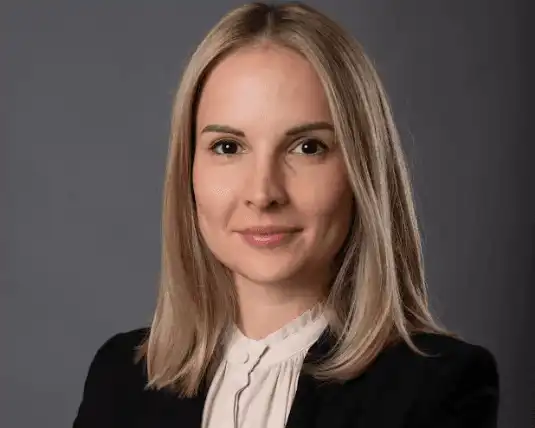Home>Boglarka, Senior Inter-Agency Coordination Associate at the UNHCR
19.02.2025
Boglarka, Senior Inter-Agency Coordination Associate at the UNHCR

Boglarka Bojtor has graduated in Human Rights and Humanitarian Action. Coming from Hungary, she is Senior Inter-Agency Coordination Associate chairing the Refugee Coordination Forum in Hungary at the UNHCR.
What are your main responsibilities?
As a Senior Inter-Agency Coordination Associate chairing the Refugee Coordination Forum in Hungary, related to refugees from Ukraine, I am facilitating a coordinated response to the needs of refugees, among all stakeholders involved, such as women-led and refugee-led organizations, the government, national and international NGOs, the academia, and others. My position is located in between the field of Operations, External Relations and Information Management, and I am working in close collaboration with other departments as well, such as Protection, Inclusion and Legal. My daily responsibilities include leading the inter-agency humanitarian planning process, organizing and facilitating the coordination forum, supporting thematic working groups, as well as several external events, data collection and reporting.
How did you prepare for this job?
I found the job by applying via the UNHCR career website, after which I participated at a written assessment and a competency-based interview. When I returned from my previous international position supporting communities rebuilding their lives after the Türkiye earthquakes, I started to use the same resources to find a new position, as I did when I graduated. This included the PSIA Career group on LinkedIn, and networking with several former classmates who now work at the biggest international organizations. They are the best resource when it comes to understanding hiring processes, as well as the specific candidate profiles that organizations are looking for.
What is the most fascinating part of your job?
I am constantly moving around the country, meeting with stakeholders from grassroots organizations to high-level government officials, promoting a cohesive response. I do not represent UNHCR, rather all the partners involved in the Refugee Response Plan in the country, which makes me able to get to know all the actors involved in humanitarian and development work in the country.
How did your PSIA experience contribute to the position you hold today?
I have been working in leadership positions for 2 years after graduating from PSIA. I was leading a team at the International Federation of Red Cross and Red Crescent Societies (IFRC) related to the response to the Russia-Ukraine international armed conflict, and I was also part of the organization's emergency response unit, deploying to emergencies such as the Haiti and Türkiye earthquakes and the Nagorno-Karabakh situation, as an independent leader of my thematic area. Studying at PSIA was a fast track of my career, as it provided an opportunity to learn the theory and practice of humanitarian work, including the full international legal framework, as well as the practicalities of the entire programme cycle. Oftentimes I have to facilitate meetings, workshops, training, and the practical, scenario-based learning at PSIA definitely prepared me to be a confident public speaker.
What advice would you give to current students?
Choose your concentrations and classes strategically, as they will lead to the foundations of your work. I have used my knowledge from my project management concentration every day in the last 4 years since graduating. Also, get to know your peers, as in a few years they will become your most important network all around the world.
Information Sessions: Masters

Find out more about the Masters programs and the wide choice of specialisations offered by the 8 Schools of Sciences Po during our webinars dedicated to applicants.